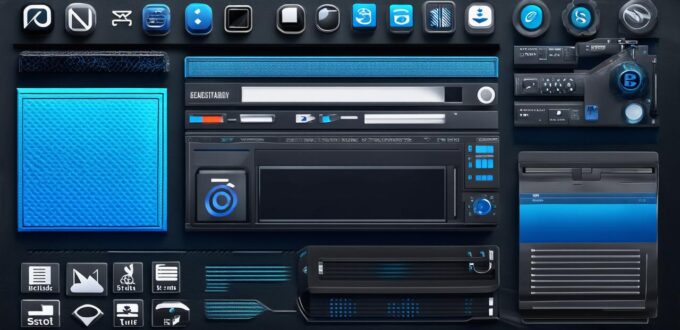Application software plays a crucial role in modern technology, providing users with tools to perform a wide range of tasks. However, with so many different types of application software available, it can be difficult for developers to determine which type of software is best suited for their needs. In this article, we will explore 20 different kinds of application software and discuss their features, uses, and applications in today’s digital landscape.
1. Productivity Software: This type of software includes tools such as word processors, spreadsheets, and presentation software. These programs are designed to help users create documents, calculate financial data, and present information to others. Popular examples include Microsoft Word, Microsoft Excel, and Microsoft PowerPoint.
2. Multimedia Software: This type of software includes tools for creating and editing audio, video, and images. Examples of multimedia software include Adobe Photoshop, Adobe Premiere Pro, and Final Cut Pro. These programs are often used by graphic designers, filmmakers, and photographers to create high-quality visual content.
3. Collaboration Software: This type of software allows multiple users to work on a project or document simultaneously. Examples of collaboration software include Google Docs, Trello, and Asana. These programs are often used by remote teams to facilitate communication and coordination.
4. Customer Relationship Management (CRM) Software: This type of software is designed to help businesses manage customer interactions and track sales. Examples of CRM software include Salesforce, HubSpot, and Pipedrive. These programs are often used by sales and marketing teams to improve customer engagement and increase revenue.
5. Enterprise Resource Planning (ERP) Software: This type of software is designed to integrate various business processes such as finance, human resources, and supply chain management. Examples of ERP software include SAP, Microsoft Dynamics 365, and Oracle Netsuite. These programs are often used by large organizations to streamline operations and improve efficiency.
6. Content Management System (CMS) Software: This type of software allows users to create and manage website content without the need for specialized technical knowledge. Examples of CMS software include WordPress, Drupal, and Joomla. These programs are often used by small businesses and individuals to create and maintain their own websites.
7. Learning Management System (LMS) Software: This type of software is designed to help educators deliver and track online courses. Examples of LMS software include Blackboard, Canvas, and Moodle. These programs are often used by schools and universities to provide students with access to educational content from anywhere in the world.
8. Virtual Private Network (VPN) Software: This type of software allows users to securely connect to a remote network or server as if they were connected directly to it. Examples of VPN software include ExpressVPN, NordVPN, and Surfshark. These programs are often used by individuals and businesses to protect their online privacy and security.
9. Time Tracking Software: This type of software is designed to help users record the time they spend on various tasks. Examples of time tracking software include Toggl, RescueTime, and Clockify. These programs are often used by freelancers and remote workers to bill clients accurately and track their own productivity.
10. Project Management Software: This type of software is designed to help users plan, organize, and manage projects from start to finish. Examples of project management software include Asana, Trello, and Monday.com. These programs are often used by teams of all sizes to improve communication, collaboration, and productivity.
11. Antivirus Software: This type of software is designed to protect users’ computers and devices from malware, viruses, and other forms of online threats. Examples of antivirus software include Norton, McAfee, and Kaspersky. These programs are often used by individuals and businesses to safeguard their digital assets.
12. Social Media Management Software: This type of software is designed to help users manage their social media accounts and engage with their followers. Examples of social media management software include Hootsuite, Buffer, and Sprout Social. These programs are often used by businesses and individuals to increase their online presence and reach.
13. Email Marketing Software: This type of software is designed to help users create and send email campaigns to promote products or services. Examples of email marketing software include Mailchimp, Constant Contact, and ActiveCampaign. These programs are often used by small businesses and entrepreneurs to build their email lists and increase sales.
14. Inventory Management Software: This type of software is designed to help businesses track inventory levels, manage orders, and optimize supply chain operations. Examples of inventory management software include Fishbowl Inventory, Zoho Inventory, and QuickBooks Enterprise Advanced Inventory.

